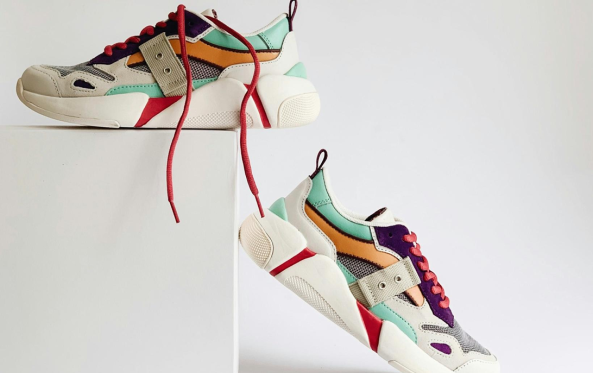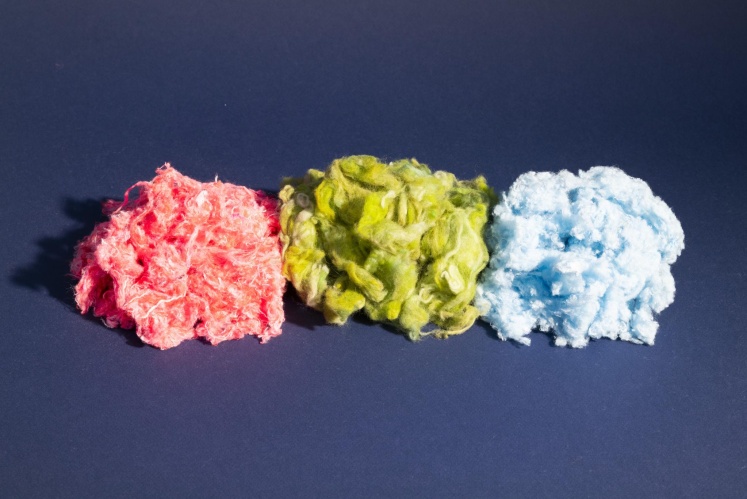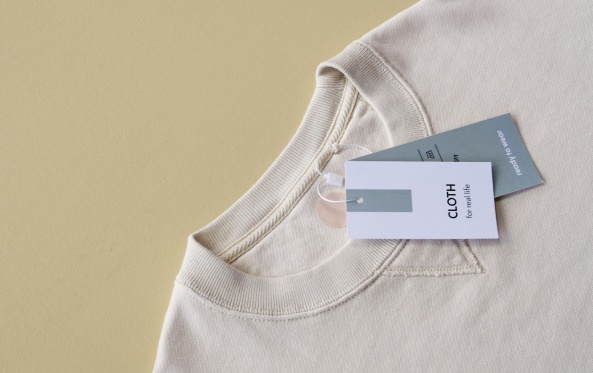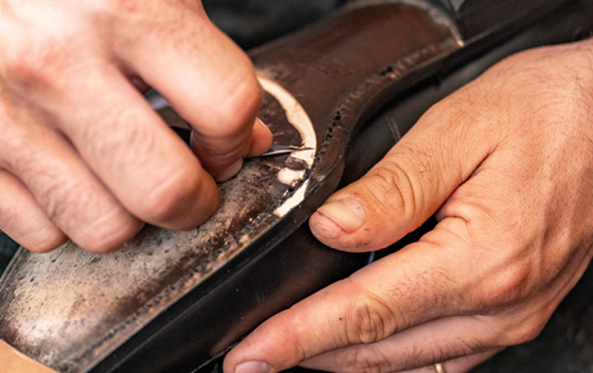
Inclusion of recycled materials
Damaged clothing, used linen or used shoes… At first glance, it seems like there’s nothing left to do but throw them away. But what if the end of their first life was actually the beginning of a second one?
Used textiles and shoes can be collected, sorted and turned into new materials. You can improve the design of your products by using recycled raw materials. Interested?
We’ll tell you all about it!

Textile and footwear recycling: how it works
When an item of clothing, household linen or pair of shoes is worn out, it is important to drop it off at a collection point. From there, it’s collected and sorted, ready for a second life.
Several scenarios are possible, following the hierarchy of waste treatment methods.
It can be:
- Reused as is and resold on the second-hand market,
- Recycled (as textile yarns or fibers, cleaning cloths, insulation materials, etc.),
- Converted into solid recovered fuel,
- Incinerated (or landfilled) with or without energy recovery.
Key figures on the incorporation of recycled raw materials
79,8%
In 2024, 79.8% of non-reusable used textiles and footwear were recycled (source Refashion 2024 Activity Report: https://rapport-activite.refashion.fr/recycler)
6M€
That same year, €6 million were invested by Refashion to boost the industrial recycling sector of used textiles and footwear in France and Europe (source Refashion 2024 Activity Report: https://rapport-activite.refashion.fr/recycler).
28%
In total, 28% of your eco-fees directly fund the management of efforts to collect, sort and process used textiles and footwear.
View the Activity Report
Reasons behind the incorporation of recycled raw materials
By integrating recycled raw materials into your product design, you are taking part in the circular economy!
The goal? Turning waste into new resources.
What are the benefits for you and your customers?
By adopting an eco-design approach through the use of recycled raw materials, you:
- Demonstrate your commitment to the circular economy,
- Reduce the use of new resources,.
- Limit waste and greenhouse gas emissions,
- Offer your customers innovative products and strengthen your brand image,
- Improve and showcase your impact performance.
Refashion offers a dedicated eco-modulation for the incorporation of recycled raw materials. Interested?
Enhance your impact materiality and make it visible!
Why include your recycling projects in your non-financial reporting?
- Using recycled materials is a strong marker of eco-design and innovation. It clearly demonstrates your efforts to replace new materials.
- It is also a strategic lever to showcase your commitment to traceability and transparency, by publishing your results and objectives regarding the average rate of recycled materials integrated into your products.
Strengthen your materiality assessment and align with extra-financial reporting requirements (CSRD, VSME, etc.).
- Clearly present your recycling processes (closed-loop or open-loop), highlighting the environmental benefits associated with each option. Integrate these practices into your business model by showcasing collaborations with key players in the value chain: recyclers, spinners, weavers, and others.
- Don't forget to include your communication and customer awareness initiatives: they are essential to promoting your recycled products and encouraging more responsible purchasing behaviour.
The use of recycled raw materials tangibly enhances your sustainability performance and brand appeal, reduces your environmental footprint and positions your brand as an active player in the sustainable innovation dynamic.
How does Refashion help you take action?
The Recycle platform
Find, in just a few clicks, recycling professionals who can help you incorporate recycled raw materials into your product design.
The R&D Partnerships Call
Our funding program is designed to support concrete, innovative and scalable solutions for recycling non-reusable used textiles and footwear.
Go further
Guides, studies, webinars, events… Discover all the resources available to you!
Need help?
For further information:
For any questions, please consult the FAQ or complete the contact form
A dedicated hotline is available Monday to Friday, 9am to 5pm: +33 (0)1 89 16 94 06



